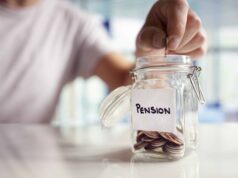The amount of money owed to HM Revenue & Customs in overdue tax has risen sharply. This is according to a recent Freedom of Information (FoI) request and in a further indicator of a slowdown in the UK economy as a whole.
The FoI request, submitted by accountancy firm UHY Hacker Young, was released on Monday and showed that individuals who pay income tax and National Insurance via the self-assessment regime already owed £1.6 billion in late taxes for the 2017-18 tax year, which is the year currently being settled.
The accountancy firm said they expected the estimated tax payments to ultimately exceed the £1.83 billion figure of late payroll taxes in 2016-17 as more income tax returns are filed, continuing a wider trend of money owed by individuals who missed the tax return deadline rising year-on-year.
In 2015-16 the amount of tax paid after the deadline was £1.76 billion, up from £1.65 billion in 2014-15.
The number of self-employed people is at record levels: the Office of National Statistics (ONS) estimated that there were 4.96 million self-employed people between April and June. That’s 15.1 percent of the employed workforce with self-employment income from sources such as an independent contractor or freelancer.
However, whilst the number of self-employed people is a factor, as those new to the self-assessment system struggle to get to grips with it, the accountancy firm believe that another major factor is the struggling UK economy. The economy is squeezing taxpayers’ cashflow and making it more difficult than ever to pay taxes, bills and expenses on time.
Neela Chauhan, partner at UHY Hacker Young, said:
“The vast majority of taxpayers are fully intending to pay on time. However, they face a lose-lose scenario when they find it hard to do so.
“They could either choose to pay the full amount on time, risking the long-term health of their business or career because of the hit on their cashflow, or accept a potentially hefty fine further down the line.”
Research published in July found that the number of fines issued by HMRC for late payment of the income tax return had risen sharply, corroborating the picture painted by the FoI request. The research also revealed a drop in the number of thirty-day fines issued which were then subsequently cancelled.
Taxpayers who miss the self-assessment income tax return filing deadline by up to three months receive a £100 fine, and after three months the penalty is £10 per day up to a maximum of £900.
For those who pay estimated taxes thirty days late, a penalty of five percent of the amount owed is levied, plus interest at the HMRC rate. If the tax payment has still not been made after six months, another five percent penalty plus interest is charged, followed by a further five percent plus interest after twelve months if the contractor tax is still outstanding.
Penalties may be waived by the tax authority if a reasonable excuse can be given, such as critical illness or bereavement. making it unable to pay estimated taxes within the deadline.
However, other data revealed by the recent FoI may suggest a less sympathetic HMRC, as the number of late tax payment penalties that were subsequently cancelled fell from 23 percent in 2015-16 to 22 percent in 2016-17, Ms Chauhan said.
“Many commentators have suggested that HMRC is becoming increasingly aggressive when chasing down debts,” she added.
“Taxpayers would like to see the Revenue be more flexible and give them a bit of leeway when managing payments.”
An HMRC spokesperson said: “We want people to pay on time rather than receive penalties. If customers are unable to pay on time, they may avoid penalties by contacting HMRC as soon as possible and we can discuss whether it might be possible to set up a payment plan.”
3rd September 2019.









